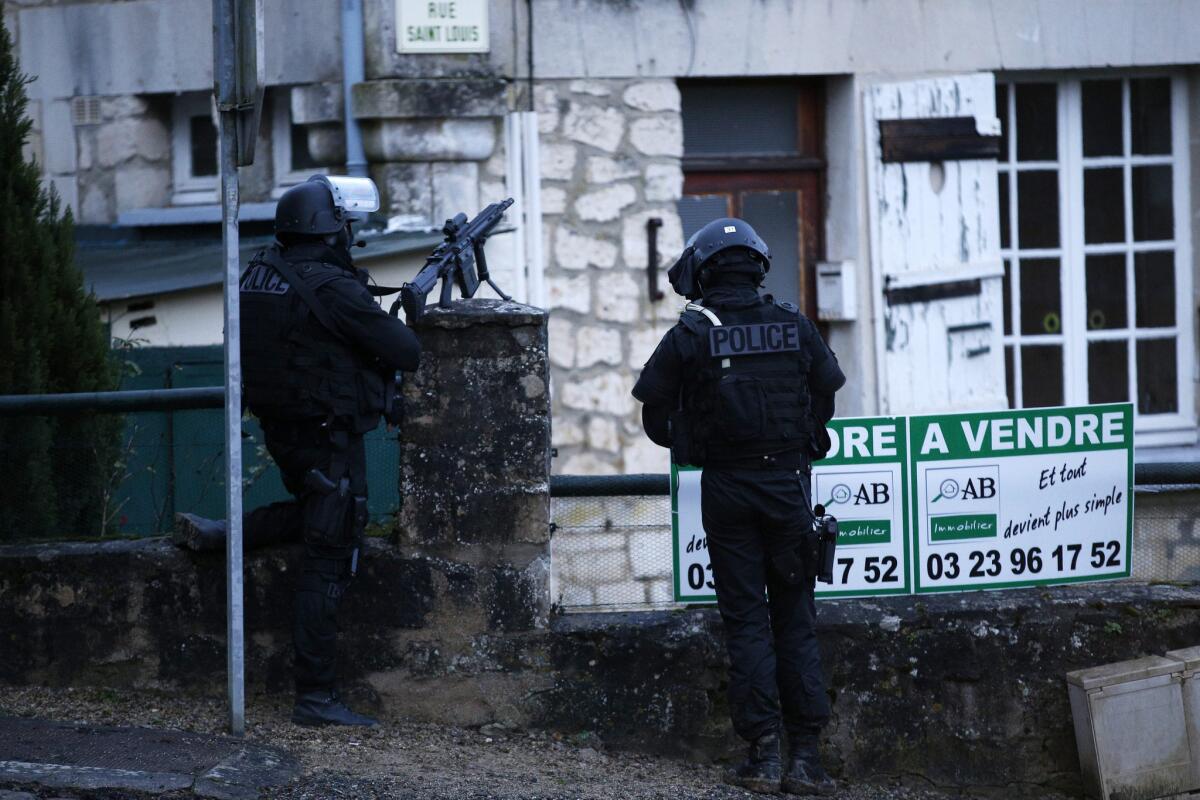U.S. investigating depth of Al Qaeda group’s ties to attack in France

- Share via
Reporting from Washington — U.S. intelligence officials are looking closely at what role Al Qaeda’s affiliate in Yemen may have played in the attack on a newspaper office in Paris this week that killed 12 after determining that one of the gunmen trained with the terrorist group.
The gunman, Said Kouachi, is believed to have traveled to Yemen in 2011 to train with the group, Al Qaeda in the Arabian Peninsula. At the time, the jihadist organization was a magnet for Westerners wanting to join Al Qaeda. The Yemen cell was responsible both for the failed attempt to blow up a jetliner bound for Detroit on Christmas Day in 2009 using a bomb hidden in a man’s underwear as well as a disrupted plot to hide explosives in printer cartridges shipped to Chicago a year later.
Over the last year, AQAP has been eclipsed in the headlines by another jihadist organization, Islamic State, that blitzed across northern Iraq and has taken over large swaths of both Iraq and Syria. Islamic State has repeatedly declared that its chief intent is to establish a caliphate in the Middle East, but Al Qaeda’s main goal remains to attack the West, and its desire to do so has not diminished, U.S. officials have warned.
It remains unclear whether AQAP was directly involved in planning the attack in Paris. U.S. intelligence officials believe Kouachi, the older of the two brothers believed responsible for the shooting rampage, trained for a few months in Yemen, according to a U.S. counterterrorism official.
Kouachi appears to have returned to France that same year, shortly before Anwar Awlaki, the American-born cleric who directed the group’s outreach to Europeans and Americans, was killed by a U.S. airstrike. U.S. intelligence officials believe Kouachi may have lost contact with his handler in AQAP after Awlaki was killed in September 2011 and that Awlaki’s death may have disrupted plans for Kouachi to launch an attack earlier and could explain why Kouachi, 34, kept a low profile for several years before allegedly carrying out the deadly attack in Paris, the official said on the condition of anonymity to discuss internal assessments.
That leaves open the possibility that Kouachi drew on his training to plan the attack with his brother alone. Such a scenario would not have required ongoing communication with leaders in Yemen and would have made the plot harder to detect.
U.S. intelligence officials have long believed it was “remarkable” that there hadn’t been more terror attacks in France, said Daniel Benjamin, the former chief of counterterrorism for the State Department, given that nearly 1,000 French citizens had traveled to Iraq and Syria to fight over the last three years.
The attacks also show how hard it is to monitor hundreds of potential terrorists, said Benjamin, now at Dartmouth College. “It’s entirely possible … that the law of averages simply caught up with them. You can’t defend against every attack everywhere,” Benjamin said.
For more coverage of Washington, follow @bybrianbennett on Twitter.
More to Read
Sign up for Essential California
The most important California stories and recommendations in your inbox every morning.
You may occasionally receive promotional content from the Los Angeles Times.











